Epistle to Storm Lake
September 23, 2021
I don’t frequent premieres, or interview people who have had documentaries done about them. Yet, last Thursday an opportunity fell in my lap, and I found myself standing in the quaint Vista 3 theatre. Debuting for the first time locally was the documentary, Storm Lake, which had been showcased at many film festivals this past summer. The production focuses on Storm Lake’s local newspaper, The Times, the family behind the paper and the community we all are a part of.
The film premiered exactly a week ago in Storm Lake, and it’s taken me that long to attempt to articulate how it made me feel. From the opportunity itself to attend and view, to the even greater pleasure of being able to interview those who starred and directed it, I was in awe the entire time.
The tantalizing aroma of buttered popcorn wafted through the air, and the rumbles of jovial conversations buzzed all around me. With my camera hanging around my neck, my trusty leather notebook in one hand and my pen in the other, I devised how I would speak to a Pulitzer Prize winning journalist, members of his talented staff, and two directors. Those directors have over 25 years of experience and one is an Emmy and Peabody-winning independent producer. It was in that very moment as I galivanted my way across the theatre, weaving between plush seats to talk with Beth Levinson and Jerry Risius, my excitement faltered, and I thought to myself, ‘Holy cow, am I even qualified for this?’ Qualified or not, I did what journalists do best, I winged it.
That morning after it had been confirmed I would be attending the premiere; I did some preliminary research about it and those involved. I listened to the NPR episode which had aired the morning of the Storm Lake screening, made notes in that trusty notebook of mine, and my mind wrecked itself trying to come up with questions that had yet to be asked.
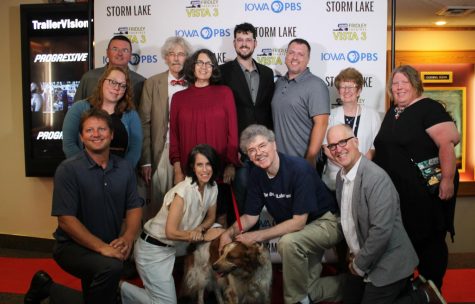
When the moment came, the interviews ensued, and I was alive after they occurred. It was in these few moments as I was speaking to these talented people, that I realized what I was doing was essentially what I want to be doing for a long time. Before stepping into that theatre, I had never deemed myself worthy of the title journalist. I would simply identify as a writer who had admirably adopted journalistic traits. Yet, when I left Vista 3 later that night, I was a journalist.
As I was connecting with these individuals, even if it was for a short five minutes, and soaking up as much information from them as possible, the whole ordeal was riveting. When those moments were over, it was time to watch the film, and somehow, I was even more exhilarated to see it.
I’ve lived in Storm Lake for three years now, going on my fourth. I’ve never felt like a community member while I have lived here. I’ve just been a BV kid who shares the same cozy space as the kind people who make this diverse town, that sits next to a tranquil lake, their permanent residence. However, after seeing this documentary, I’ve never felt more at home.
You see, when I came to Buena Vista in 2018, I had no major. I mean, what eighteen-year-old knows what they genuinely want to do with their life? I felt this immense amount of pressure to pick something, so I chose Art Education. I figured that since I’ve been a nanny for a few years, that I value culture and art, that it would be an adequate career choice. However, as my sophomore year was winding to a close, I realized I did nothing extracurricular at BV that had to do with the school of education. Anything I had passion and interest in had to do with Digital Media. I made being involved with the student paper my top priority, besides my academics, and tried to grow as a storyteller. So, with the drop of a hat, I switched my major. In doing so I went from feeling like a student living on campus in a small town, to a student whose second home is the city of Storm Lake. By sharing stories about this community, it allowed me to form a connection with it. I didn’t realize this shift until after the film because of how deeply it resonated with me, and had I never taken an interest in journalism, I wouldn’t be able to say that.
While watching the documentary with wide eyes and an eager mind, I laughed, I cried, I connected, and the film made me realize what I truly value when it concerns journalism and how it affects everyone. To be ethical, moral and value your community is to be a good journalist. To prioritize the truth and inform the public without bias is the responsibility of a journalist. The career is selfless but rewarding and I have only dipped my feet into the water.
From the coverage of the Iowa Caucus to the current ravaging pandemic and everything in between, the film focuses on how to sustain democracy via local journalism. Art Cullen said it perfectly, “Democracy can’t function without good, comprehensive, knowledgeable journalism.”
Every town, city, or even village in America, no matter how big or small, needs democracy to function, record, and share stories of the people to help others better understand the community in which they live in. Local journalism matters, not only to the journalists, but to the members of the community in which they serve. Without local newspapers, communities wouldn’t have democracy or the ability to celebrate the arts and cultures of their people.
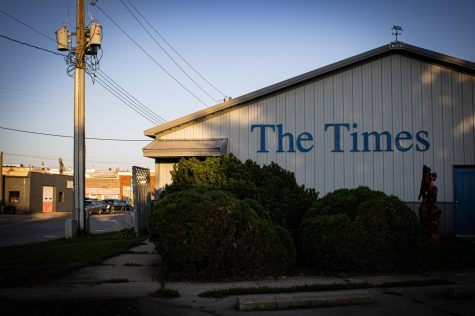
I have always doubted my ability to be eloquent in my writing and DIGI capabilities, and I have rethought my decision to change my major many times. But there was one thing Tom Cullen said that made me believe even more so that I am bearing down the correct track, “Don’t be afraid to start small.” Between the interviews and viewing this documentary, together they have made me feel affirmed about my career path. Do I consider myself a journalist? Before the documentary and the experience I had, my answer was no, not yet. But now? Yes, and I aspire to be like those at The Times. I may start small, but even a droplet of water creates ripples in a lake. If I could say anything to Jerry Risius, Beth Levison, The Cullens and the rest of The Times staff, it would be thank you.



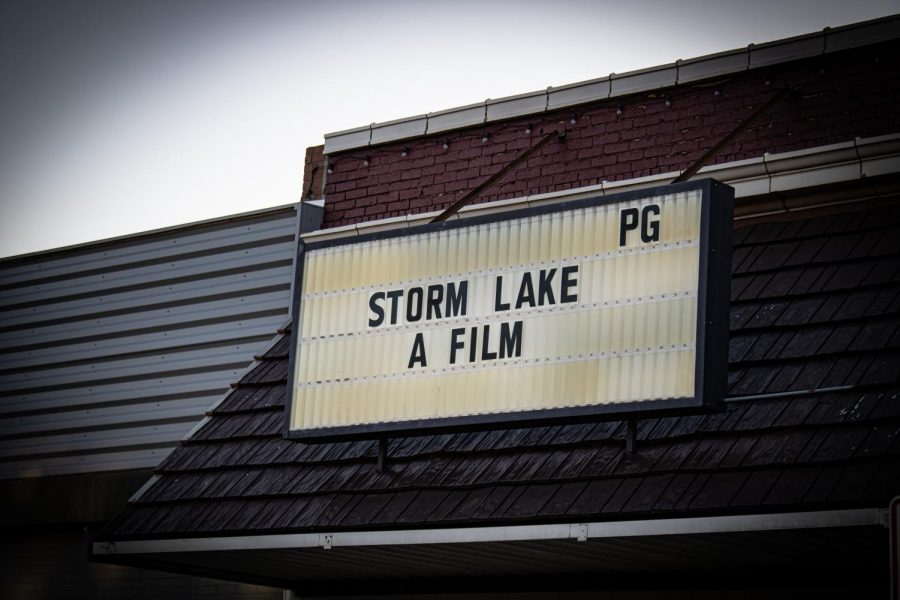
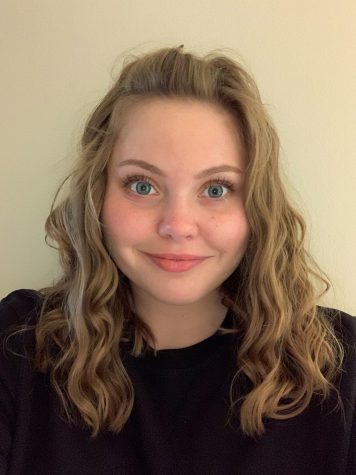
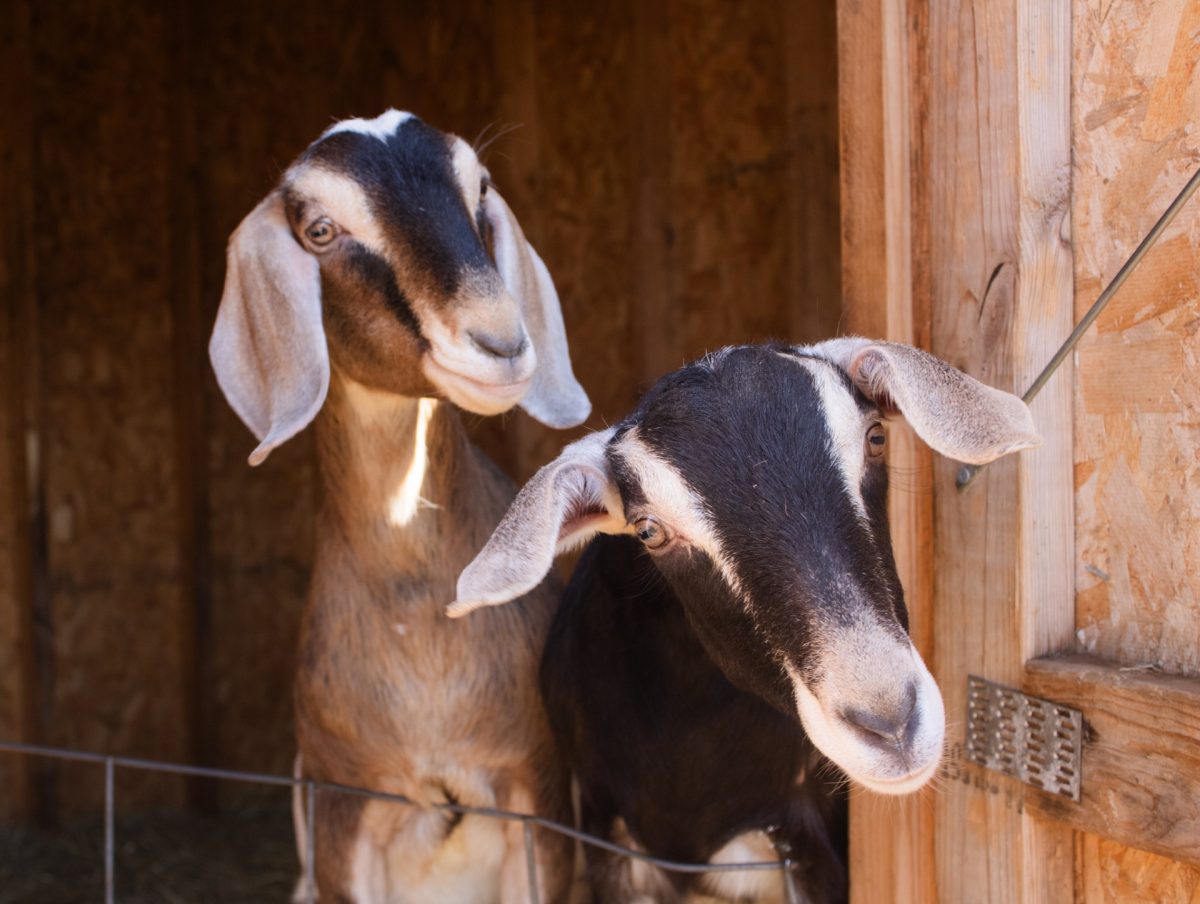

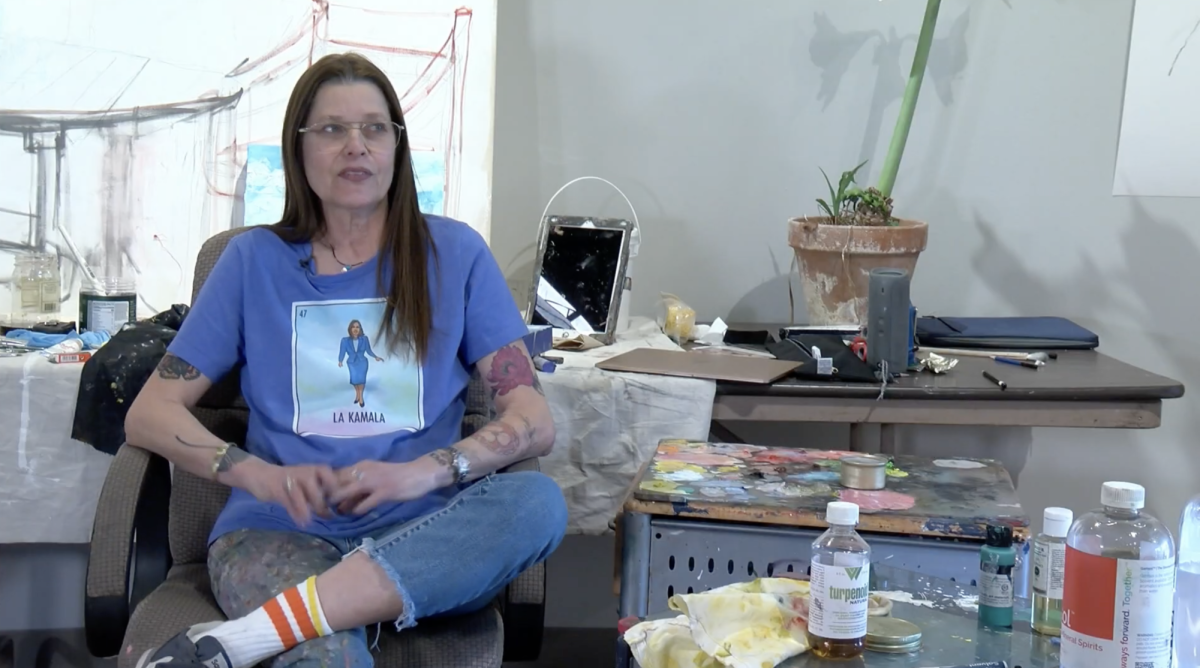

Mary C. McCarthy • Sep 26, 2021 at 10:05 am
Hello Hannah, Well-written piece that captured the dedication and diligence of the Cullen family. I saw the move this past week and am still processing its lessons. Thank you for your view of the premier as well as Storm Lake, the town and movie.
Best regards. American Needs Good Journalists – my take on Raygun’s slogan.
Mary C. McCarthy
Colleen Lemkuil • Sep 26, 2021 at 8:24 am
I also saw the film Storm Lake at the Art Center in Okoboji and got to meet Art Cullen, John Cullen, Jerry Risius, and Beth Levison. It was very inspiring and well done. I also heard the interview on NPR. Thanks for sharing your notes and we wish you well in your journalism career. Keep writing.
GERRY ROWLAND • Sep 25, 2021 at 8:37 pm
Beautifully written. My wife is from Storm Lake, Art Cullen was in her class at St. Mary’s. I have been visiting Storm Lake since 1986, love the town and all it is doing to be welcoming.
I saw the movie at an outdoor showing at The Varsity theater (next door, actually)–it was awesome, as was the Q and A. And ,it turns out that Beth Levison graduated from my alma mater, Middlebury College in VT. And now she and Jerry are my new Facebook friends.
Best wishes for a successful journalism career!